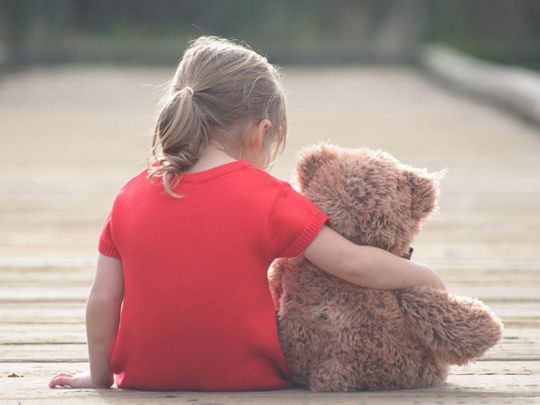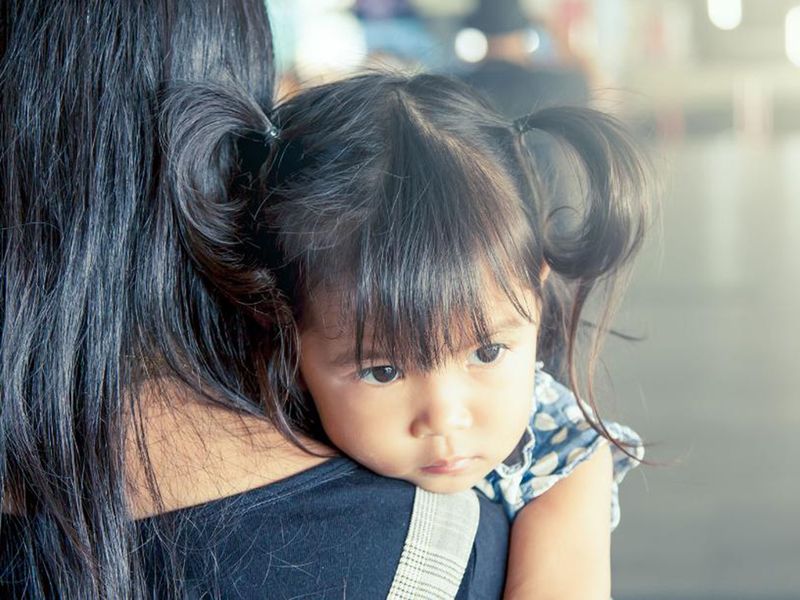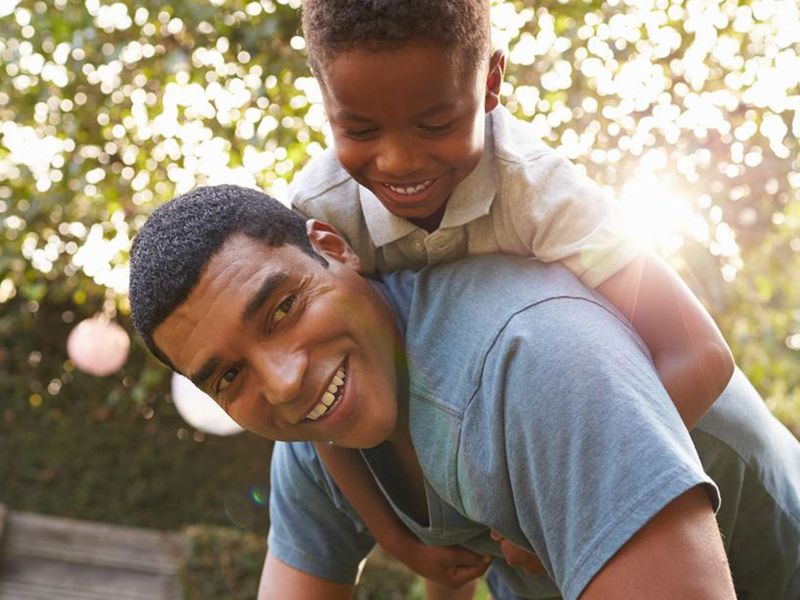
Speak to an adult with depression, with addiction, with mental health issues, and chances are they’ll tell you they’ve been that way since they were a kid.
Although depression is a disorder that usually begins around puberty, it can occur in children as young as preschool age. Periods of significant stress, like the Coronavirus pandemic, can also trigger depression in children who haven’t shown any signs of it previously. And, while in other parts of the world, societies and education systems might be more geared up to support children and teens through their times of emotional and mental need, here in the UAE the issue is still largely ignored – a factor that has seen the issue dubbed ‘a silent epidemic’ by some experts.
Even more disturbing is the long-lasting effect of childhood depression – apparently children who are depressed in their pre-school years are more than twice as likely to be depressed by the time they hit double digits*. Most disturbing of all is the message from the World Health Organisation that half of all mental health disorders in adulthood start by the age of 14, but are largely undetected and untreated.
With this clear sign that childhood depression can cast a long-term shadow over a person’s entire life-span, as a parent, why wouldn’t you want to know the facts?
Is my child stressed?
Depression is more than just feeling sad or having bad days, says Caroline Miller of the Child Mind Institute. "A child who seems to be stuck in a negative mood — feeling hopeless and not able to enjoy anything — may have depression and may need help to bounce back."
But it’s not always easy to recognise when your child is depressed. Especially as children are so well-skilled in putting on the face, or act, that they know makes their parents happy. Emma Gregory, student counsellor at Jumeirah College, says, “Children have a tendency to paint on a smile for the sake of their parents. I don’t think they intentionally are trying to hide their feelings – more that it’s a product of their confusion and not knowing where to turn and not wanting to be the source of added stress to their parents.”
A general rule of thumb is that if there is a change in behaviour, it should be checked out. The National Institute of Mental Health says, “Because normal behaviours vary from one childhood stage to another, it can be difficult to tell whether a child is just going through a temporary ‘phase’ or is suffering from depression.” It suggests that if you, or your child’s teacher, notices a change in behaviour, or personality, your child should be seen by a paediatrician to rule out physical issues and, if there are no answers found there, he or she should be seen by a child psychiatrist.
Warning signs
Children may start trying to exert control over themselves, or their lives, in unusual new ways, says counsellor Gregory. This could be controlling their eating, when they feel pain, or their state of mind, for example.
“Without intervention, such coping mechanisms can be debilitating and life shattering,” says Gregory. “Not just emotionally, but physically, too – extreme stress releases extra hormones into the body, which can affect the immune and digestive system. However, with professional guidance this can all be overcome.”
Luckily, there are more obvious warning signs. “Has a teacher picked up on any change in effort?” says Emma. “Has your child suddenly lost interest in the things they used to love doing? Were they once keen and active, and now lock themselves away for hours on end? It’s not rocket science, trust your parental intuition, it rarely fails. If your child needs help, you’ll know.”

Is it normal?
Dr Saliha Afridi, clinical psychologist and director of The LightHouse Arabia, says that stress is a necessary part of life. “The definition of stress is asking your emotional and physical systems to do more than they are capable of. If you ask parents if their child is stressed, they might say no. But ask them if their child is ever distressed, and they’ll probably all say yes.
“The problem is, some parents are so stressed themselves that they can’t pick up on their child’s stress. We need to have some space and peace inside ourselves so we can feel our child’s feelings.”
What is my child stressed about?
Even in ordinary times children are under immense pressure from their families, at school, from their peers... Add a pandemic to that mix, along with an extended period of isolation away from friends and normal activities and it can all add up to create a whirlwind of stress in a child’s mind as they worry about the virus, experience loneliness, and also worry about letting people down and not rising to the occasion. Dr Afridi says, “Parents are often in a rush to push their children through developmental milestones… at mothers’ mornings, you hear, ‘My baby is rolling over now.’ Or, ‘My little one is starting to walk.’ Pushing babies and young children to do things before they are ready can be stressful for them. Also, children are over-stimulated with electronics and there’s a lot of bullying because they aren’t being guided through character development… parents are too busy.”
Dr Katie Laing, therapy services manager at The Priory Group Dubai agrees, and adds that starting at a new school, or changing classes, or just a new year at school - especially after the recent extended period away - can be stressful for young children, perhaps more than parents realise. She says, “If your child is refusing to go to school at the start of term, but you can get them there without too much issue, it’s probably not a big problem.
“But if it gets worse, and the situation goes over weeks, there might be a bigger problem. Take time with them in the morning and let them talk about it. Reassure them that you will be there at the school gates – acknowledge that it is hard and be patient, despite your own anxieties and worries.”
According to Dr Laing, factors that can cause young children to be stressed out, or unable to cope, include separation anxiety (for example, starting at a new school and missing their friends), changes in caregivers, parental separation, being too busy, not getting enough downtime and not getting enough sleep. She says, “Remember, it’s about your child’s perception of the world around them. You might think that everything is fine, and not understand why your child is struggling to cope. But she might not yet have developed the coping strategies that you have learnt.”
How can I protect my child?
While some elements of our children’s world are out of our hands, their emotional development and resilience is something that we can effectively and easily influence. First of all, make the time to talk to your child every day. School counsellor Gregory says, “It is not a case of suddenly bombarding your child, with questions. This will only make them clam up and become defensive. Consistent and open parenting is the key. Talk, talk and talk some more every day. Be as open and honest, in an age-appropriate way, as possible. If this isn’t the type of relationship you already have, then start today.”
Use your open conversations as an opportunity to bolster them with your support. Madeeha Afridi, counselling psychologist at The LightHouse Arabia, says, “Validate their feelings by being present with them and listening to them, while letting them know that you believe in them and have faith they will come through this. Talking about their feelings will help them think about what they are experiencing and why.”
Aside from supporting your children, one of the best gifts you can give them is the ability to manage their own emotions. This will not only protect them from emotional stress now, but will empower them with skills they’ll use right through to adulthood. Dr Afridi is a big believer in the importance of Emotional Intelligence (EQ). She says, “Child and adolescent disorders are on the rise... I used to be a college counsellor and I’ve seen problems that started in adolescence affect people in all walks of life.
“Interestingly, 85 per cent of life success depends on how well a person can navigate their feelings and communicate them, but many children are never taught how to do this.”
She says, “In the US, mindfulness is being integrated into the education system. Like all mothers, I want my children to be healthy and happy throughout their lives. I know that the best way to do this is to prepare them for the world by educating them on topics like mindfulness, meditation, anger management and stress management.
“It’s our responsibility to equip our children with the tools they need to survive the world they are going into. Ask your child if anger is bad and they’ll probably say, ‘Yes’. But it isn’t bad. It’s a human emotion – a reaction. And there are ways to deal with it.
“This stuff is not being taught in schools and the repercussions are endless.”

The golden hour
The one point all of the experts were adamant about was the need for parents to spend one hour a week with each child individually, engaging in an activity together without distraction from phones or work, without pressure and without judgement. Whether this be playing a board game, kicking a football around in the park, doing an art activity together... plan that hour into your weekly schedule and protect it – nothing should stop that hour from happening each week. Make it a priority.
Dr Laing says, “If children don’t get a chance to talk about how they are feeling, we can bypass it. We don’t do it intentionally… life is busy and we are trying to juggle everything. So it’s important to have that protected time each week with your child. This is where you get to really find out what’s going on with them.”
Dr Afridi says, “I might only spend one hour a week with a client, but for that hour I will be 100 per cent focused on them without judgement. It doesn’t take a lot of time – it takes a little bit of time, and a lot of attention. Parents often feel they can’t crack into their kids so they bring them to me. I don’t do anything different, I just don’t judge them.”
Dos
Do role model coping strategies
Dr Laing says, “Children can ruminate on a worry and get stuck on it. Parents can help with this by listening to them and then helping them to break it down into manageable chunks.”
Do take care of yourself
School counsellor Madeeha Afridi says, “One of the most important things parents can do for their child is take care of themselves. If parents are grounded, centred, and anchored, children will feel comfortable to turn to them when they are feeling down.”
Do have a strong routine
Dr Laing says, “Children of all ages respond positively to stability and routine. Routines can calm a child.”
Don’ts
Don't speak to them like an adult
Dr Laing says, “Don’t ask your child if they are stressed. Use age-appropriate words, such as, ‘It seems like you’re not very happy at the moment. How can I help? Tell me about it.’”
Don't let them in on your stress
Dr Laing says, “Parents’ business is parents’ business. Be mindful of what children see and hear.”
Don't allow it to go on too long
Dr Afridi says, “Some of it will just be normal growing up stuff. But if it’s going on for weeks and there’s an intensity that doesn’t seem normal, you will know. We don’t need to pathologise this... I’m just saying, deal with the problem while it is small.”
Don't alienate your child
Dr Afridi says, “Ask them what’s going on and have an appropriate response that is encouraging and supportive, not a ‘freaked out parent’ response. If you respond in that way, your child will think, ‘I can’t talk to this person. It’s best if I don’t tell them anything.’”
Don't ignore the cry for help
Emma says, “The single strongest thing that a child can do is ask for help. It can be a school counsellor, a teacher, the sports coach, a friend’s parent... Adults should work together as a support network so that if a child reaches out, the adults in their world can work together to point them back in the right direction.”
Don't presume you know what’s best
Dr Laing says, “Some people love the scary rides at a water park, others don't. We all experience the world differently... parents need to remember not to assume that they know how their child is experiencing the world. It’s their perception of their world that is important here.”
*Source: University of Washington in St Louis. **source: 2013 study by Dr Sami Mana Ahmad Bin Ahmad Ali, Dubai Health Authority



